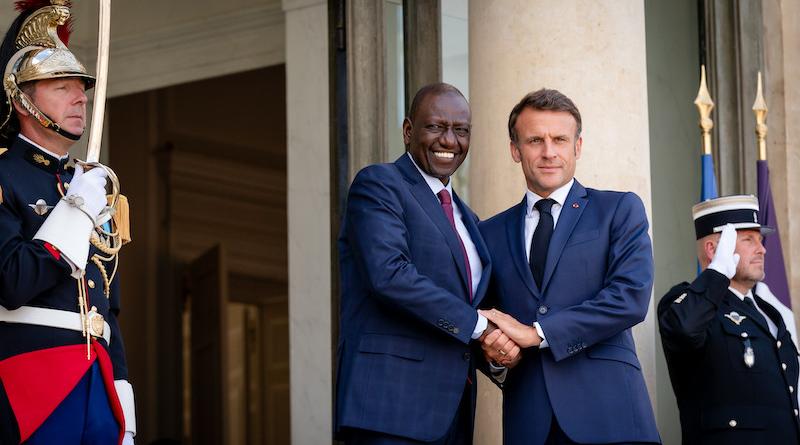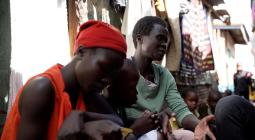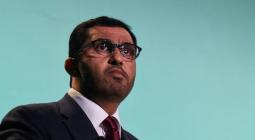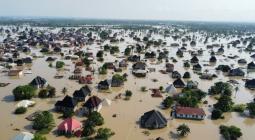France, Kenya set to launch Cop28 coalition for global taxes to fund climate action

France and Kenya are set to launch an international taxation taskforce at Cop28 to push for new levies to raise more money for climate action.
The governments are in advanced discussions with a handful of European and Global South countries that could join the coalition in Dubai, according to a source with knowledge of the talks.
The taskforce is planning to consider a broad range of options, including levies on international shipping, aviation, financial transactions and fossil fuels, Climate Home understands.
Chrysoula Zacharopoulou, France’s development minister, said the goal is to agree on specific proposals by Cop30, in two years’ time. Those could then be negotiated in relevant international institutions, like the OECD, the UN or the G20, she added.
Barbados’s climate envoy Avinash Persaud told Climate Home the country is “happy to participate” in the initiative.
What can be taxed
Many country leaders and climate experts see taxes as among the most promising so-called innovative sources of finance that could help plug the large gap in the provision of climate funding to vulnerable countries.
“The need for additional resources internationally is paramount”, said Persaud. “The Green Climate Fund, the new loss and damage fund, these all need real resources in the billions of dollars and they can’t come from existing tax-revenues so easily, so we need additional revenues.”
Taxes on fossil fuel extraction and the emissions of the shipping industry could raise up to $210 billion and $60 billion a year respectively, according to a recent study by Climate Action Network and the European Commission.
Sources of taxation and potential revenues, according to the CAN study.
However, reaching an agreement over those measures is politically challenging and would require several years.
French-Kenyan alliance
Political momentum has gathered pace since the global financial summit in Paris last June, when 40 countries agreed to look into new avenues for international taxation, focussing initially on large greenhouse gas-emitting sectors.
Speaking at the end of the event, France President Emmanuel Macron stressed the importance of global coordination. “It doesn’t work when you do it alone, the financial flows go elsewhere”, he said.
Shades of green hydrogen: EU demand set to transform Namibia
Macron found a crucial ally in Kenya’s President William Ruto, who put the issue on the agenda at the African climate summit in Nairobi in September.
That summit’s final statement floated the idea of a global carbon taxation regime, formed by levies on fossil fuel trade, maritime transport and aviation, and potentially “augmented” by a global financial transaction tax (FTT).
Broad framework
The French and Kenyan governments have accelerated efforts over the last couple of months to form a broad coalition, receiving interest from countries, a source with knowledge of the matter told Climate Home.
Those pushing the plan have not yet finalised a detailed framework or specific targets because they don’t want to put any country off at this early stage, they added.
Farmers’ Protest in Gerona, Philippines. Basilio Sepe / Greenpeace
France’s Zacharopoulou said during last week’s Paris Peace Forum that the coalition will both provide a detailed analysis of each taxation option and gauge how acceptable they are to different governments.
“It is a sensitive conversation that needs to be led with a cool head”, she added.
Developing countries sensitivity
Many large developing countries have opposed climate-related international taxation. They claim they would distort markets, hamper development and shift responsibility for reducing emissions.
Brazil led resistance from a group of governments to a tax on the global emissions of the shipping sector at the International Maritime Organization (IMO) earlier this year.
They argued that such a tax would disproportionately hit developing countries and particularly Brazil, whose economy relies on shipping heavy low-value things long distances.
Countries eventually decided to study new ‘technical’ and ‘economic’ measures to tackle the climate impacts of shipping, pushing a decision into the future.
Persaud said the taskforce will need to pay close attention to these considerations. “We need to rethink shipping and aviation emissions levies so they’re not a tax on remoteness which is a concern today,” he added.
Rachel Owens from the European Climate Foundation, which is involved in setting up the taskforce, said countries will drive forward discussions “in an equitable way”.
“This means not putting the burden on developing countries and ensuring that any adverse impacts are mitigated”, she added.





